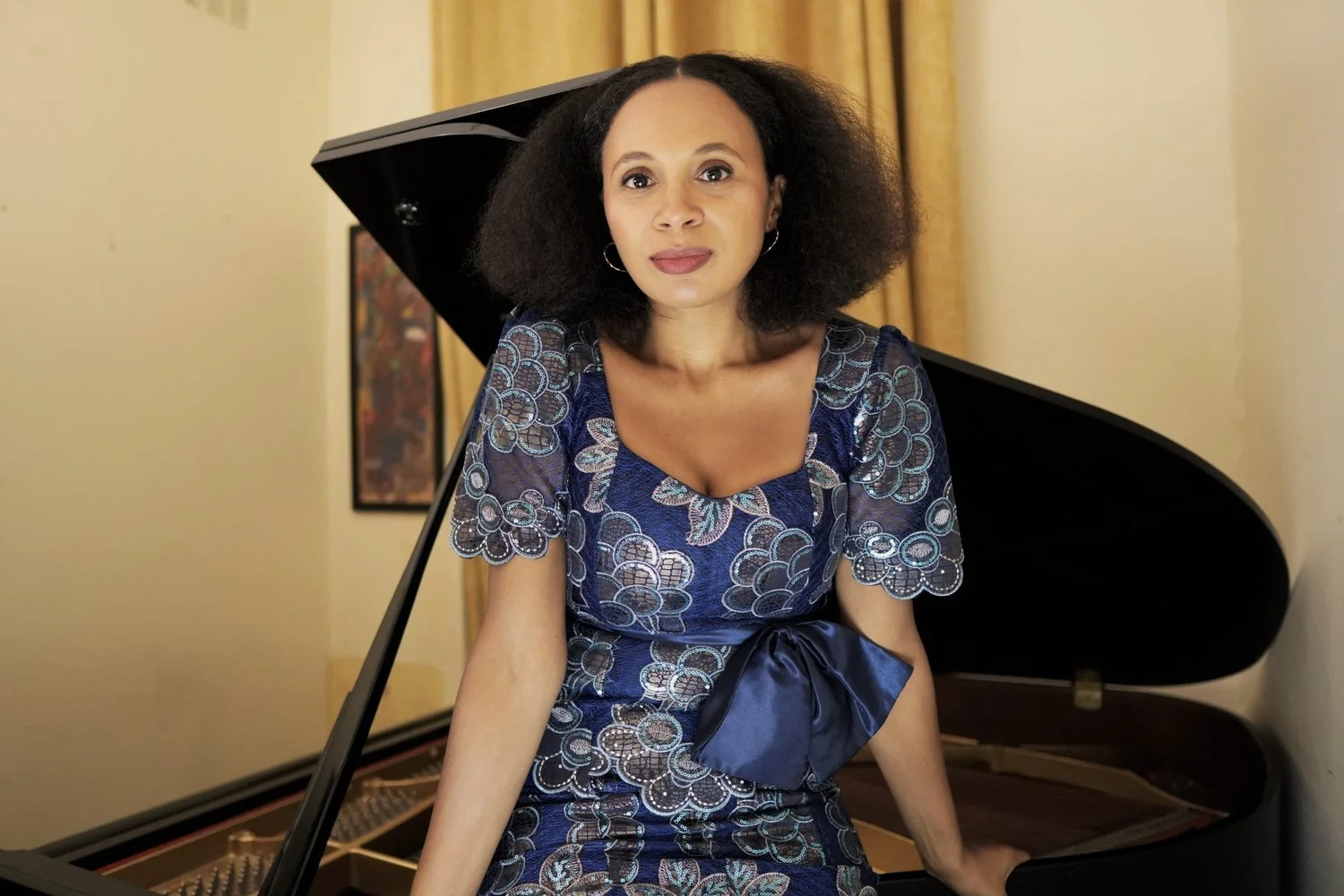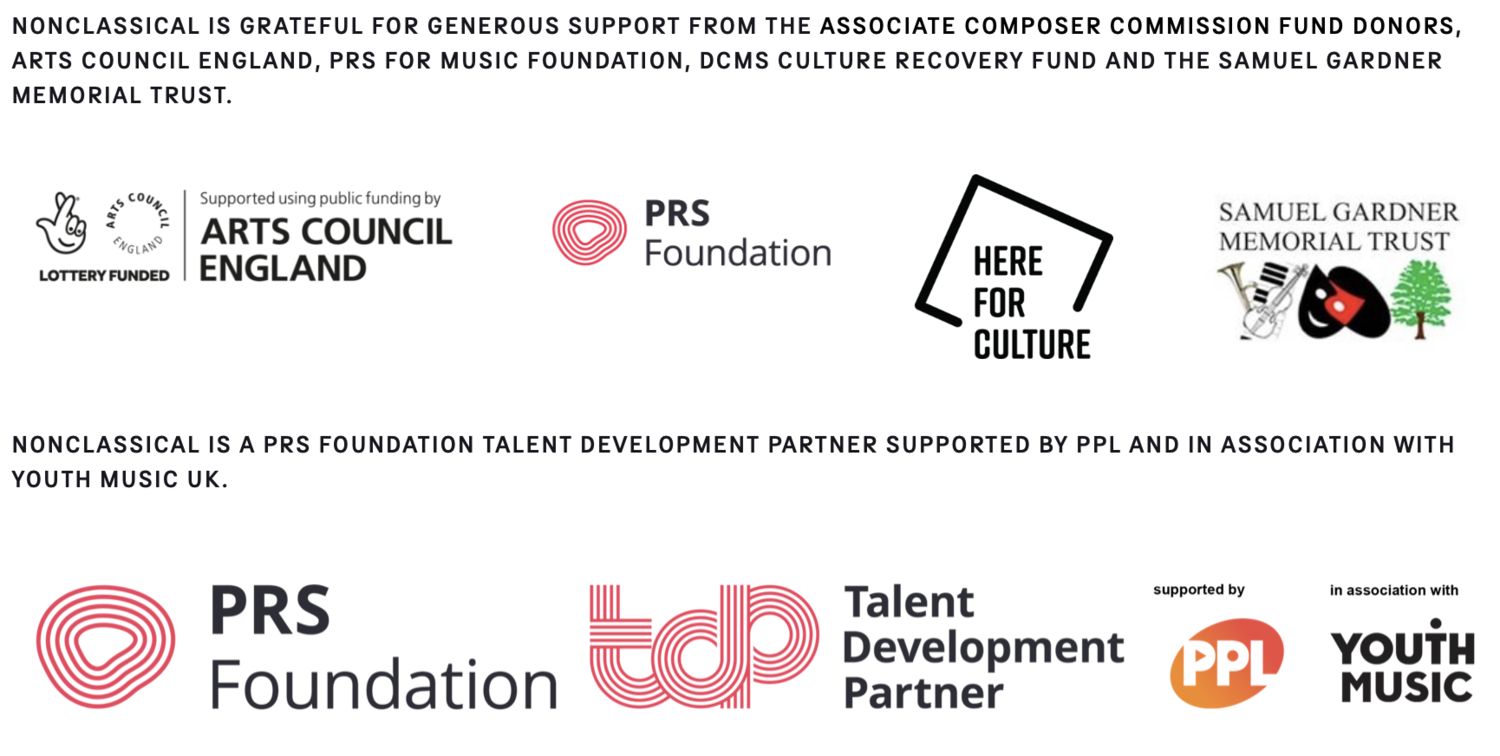Get to know Associate Composer Emily Abdy, a composer, writer, researcher and performer based in the UK.
Read more about the Associate Composers Scheme >>>
HOW WOULD YOU DESCRIBE YOUR PRACTICE?
It’s only the past year or two that I’ve realised my practice feels most authentic to me when it reflects a fusion of my musical roots. I was a teenager when I began composing. I started by writing songs about things I was experiencing and observing, often in a very Taylor Swift-esque manner. Before that I wrote poetry. Around this time I was also playing the violin in quartets and orchestras, taking a particular interest in baroque music. I became fascinated with film soundtracks and was really into heavy rock music, which I still admire for its energy, textural depth and rhythmic virtuosity. When I started studying composition full time I started writing more instrumental music, and my musical influences grew to include minimalist techniques with conceptual and interdisciplinary ways of working. More recently I’ve found an interest in experimental post-rock and indie pop/rock. I think all of this has come together in the work I make today – a lot of my music is intuitive and often very personal. I like to include hidden messages when I’m creating a piece that nod to the concept on which it’s based. It’s cathartic and perhaps a bit self-indulgent, but I do feel like my practice produces my best work.
What message do you want to convey through your Music?
Although my work can be quite personal, it often touches on wider topics of societal importance such as mental health, body image, and gender equality, as well as the nature of the music industry. I don’t like to make overt and definitive statements in my art unless it comes from a personal perspective because I’m still a living and learning human being, and I don’t want to speak on behalf of anyone except myself. As these topics are also things that have affected me as an individual living today, I feel more comfortable creating art around these subjects. Judging by my own experience as a music fan, a measure of success for me is if someone can relate to my work and find catharsis in their engagement with it. I also think bringing awareness to a topic without telling people how to feel can be really powerful. It allows people to confront their own thoughts and feelings on a topic when presented with “this is the state of things” in an engaging way. Essentially, I would like to raise awareness of the human condition and connect with people through my art. By making work of a personal nature, I hope I’m also showing people you don’t have to deny your reality – it's okay to feel the things that you’re feeling and express them creatively. That’s very much a message to myself as much as it is to anyone else.
SKIN is a fixed media version of a concert piece I made on the subject of body image. The soundtrack uses recorded interviews with individuals about their relationships with their bodies and the piece is divided into five chapters which each present a way of relating to one’s body. This film and soundtrack was later used to create an installation.
What are you excited to explore as part of the scheme?
I want to continue pushing the boundaries of what it means to be a composer, songwriter, performer and poet. I want to play with the conventions more traditionally associated with popular and classical music genres, both within my work and how I choose to present it. Working with more recordings and production work is a point of real excitement, and I’m excited to get back into performing too, after what has been a considerable break. There are some personal topics which I am still working out how best to approach, but I’m hoping to explore those in my work this coming year or so. The commissions are really exciting too – I love working with instrumentalists, so I want to challenge myself to do something different with Southbank Sinfonia. Writing for the Contemporary Music For All festival is a different kind of challenge, as I want to work out how to draw those singer-songwriter influences into a piece for an unspecified ensemble. I have already started working with the Sheffield CoMA ensemble, who are really welcoming and eager to experiment with new ways of playing. Finally, I am really excited to be working with Nonclassical! It’s a real privilege to have someone invested in you as an artist.
Where is your favourite space to create?
That question is quite tricky to answer given the impact of the pandemic, but it’s something I’ve been observing a lot more since we’ve had to spend more days at home. If I’ve started the project and I know the direction it's going in, I just need to sit down with my laptop or paper to compose. I prefer writing to be the first thing I tackle in the morning at my desk – I find this is when my brain is feeling its freshest and less bogged down with everyday worries or obligations. Up until that point, when I’m searching for initial concepts and ideas for a piece, I try not to force myself to be at my desk as I’ve found it can be counterproductive. I try to carve out time in other ways, such as allowing myself time to improvise on the piano or the guitar, free writing my train of thought or consuming other media. I’ve found my best ideas often come when I’m engaged in other activities like having a shower, exercising, listening to other music, talking to others or watching a film. In a way it feels like I never stop composing because, if the idea comes, I just note it and roll with it. I don’t think this is unusual and perhaps a lot of creatives are always switched on in this way. Obviously, if you have a deadline, you can’t delay the working phase forever. However, this kind of constant observation often means I have a bank of ideas ready to expand upon. It’s a process I’m learning to trust.
In my album memo., I compiled voice memos I had made during lockdown and just before and sequenced them in the way I would approach a popular music album.














Find out more about the 2026 Battle of the Bands lineup!